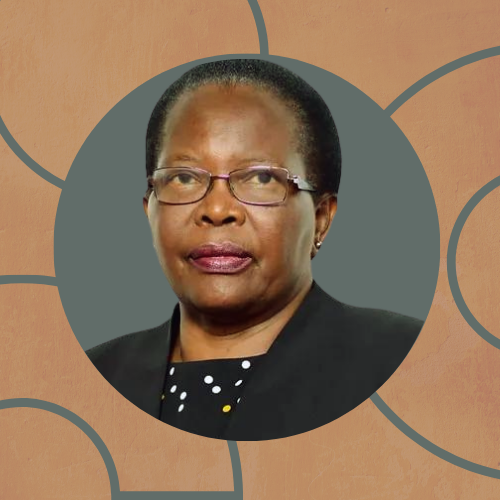Late Irene Chirwa Mambilima (1952-2021), former Chief Justice of the Supreme Court, is renowned for her role in maintaining the independence and integrity of Zambia’s judicial system, while promoting gender equality and social inclusion through her advocacy of the rule of law and the participation of women in political and public life.
In 2002, she was appointed a Judge of the Supreme Court of Zambia, the highest court in that country’s legal system. She then became Deputy Chief Justice of the Supreme Court. She strived to ensure that the court’s decisions were impartial and based on the law.
She was appointed to chair the Electoral Commission of Zambia on several occasions, during several major elections. In this capacity, she chaired Zambia’s presidential and parliamentary elections in 2006 and 2011, as well as the presidential by-election in January 2015. She earned a reputation for remaining impervious to outside pressure, vigilant in maintaining the rule of law and seeking to reassure voters that the elections were fair.
She was a leading figure in democracy and governance in Zambia. She held a number of senior positions in the Zambian judiciary, helping to strengthen the rule of law and democratic governance in the country.
Furthermore, Mambilima also played a part in initiatives to promote women’s participation in political and public life in Zambia. She advocated the empowerment of women and their fair representation in government and judicial institutions, helping to strengthen democracy and social inclusion in the country.
Her democracy and governance legacy lies in her defence of the rule of law, justice and equal opportunities for all Zambian citizens, as well as her contribution to improving the country’s judicial system. She passed away on 20 June 2021 in Cairo, Egypt.
The Champion initiative’s judges were guided by three principles of the African Charter on Democracy, Elections and Governance (ACDEG) n nominating her:
Principle of the rule of law and human rights: Article 4 of the ACDEG: “State Parties shall commit themselves to promote democracy, the principle of the rule of law and human rights.” “State Parties shall recognize popular participation through universal suffrage as the inalienable right of the people.” Article 10 of the ACDEG: “State Parties shall entrench the principle of the supremacy of the Constitution in the political organisation of the State.”
Free and transparent elections: Article 17 of the ACDEG: “State Parties reaffirm their commitment to regularly holding transparent, free and fair elections in accordance with the Union’s Declaration on the Principles Governing Democratic Elections in Africa.” Article 22 of the ACDEG: “State Parties shall create a conducive environment for independent and impartial national monitoring or observation mechanisms.”
Democratic institutions: Article 14 of the ACDEG: “State Parties shall entrench the principle of the supremacy of the Constitution and the rule of law in the political leadership of our countries.” Article 16 of the ACDEG: “State Parties shall cooperate at the regional and continental levels in building and consolidating democracy through exchange of experiences.”
